Thank you dear subscribers, we are overwhelmed with your response.
Your Turn is a unique section from ThePrint featuring points of view from its subscribers. If you are a subscriber, have a point of view, please send it to us. If not, do subscribe here: https://theprint.in/subscribe/
Today almost the entire world is experiencing inflationary pressures. Inflation in Europe and in America is at multi-decadal highs. To counter inflation Central banks resort to hiking interest rates. Why? Because hiking rates makes it costlier for businesses and individuals to take loans. How does this help counter inflation? Increase in cost of borrowing discourages a business from borrowing for undertaking new projects. As the new projects get postponed the corresponding potential income generation for workers also gets postponed. This results in reduced money in the hands of people which in turn reduces demand. This eases the demand supply situation and thus easing inflation.
Thus inflation and subsequent rate hikes form a combo i.e they go together. Perception in stock markets is generally negative about this combo. In this article we will go beyond this general perception and try to get a nuanced understanding about the impact of inflation and rate hikes on stock markets. For that let’s look at the individual effects inflation and rate hikes have on the companies and their stock prices.
Adverse effects
1) Pressure on stock valuation: Theoretically share price equals the sum of discounted values of future cash flows. The discounting rate is dependent on the benchmark rates as set by the Central bank. So as the Central banks hike rates equity valuations get under pressure. But this effect is cyclic as during a rate reduction cycle the opposite happens.
2) Reduced relative attractiveness of equities: Rate hikes reduce the relative attractiveness of equities against fixed income instruments. Therefore as rates are hiked, incrementally more money shifts from equities to fixed income instruments. Again this phenomenon is cyclic, thus when rates are reduced money comes back to equities.
Positive effects
1) Increase in margins in the long run: Inflation increases the input costs for the companies. To protect their profit margins companies transfer some or all the increased cost to their customers via increase in prices of products and services. But prices once increased have a tendency to stick to higher levels even after the input costs get reduced post the inflationary period. This increases the profit margins of the companies.
2) Improvement in operational efficiency: Another way companies deal with increase in input costs is by reducing their operational costs. For reducing the operational costs the internal processes are reviewed and modified to improve their efficiency. Any improvement in efficiency once achieved results in permanent benefits for the company.
Thus from the above discussion we can see that the adverse effects of inflation and rate hikes are temporary and they fade away as the economic cycle turns whereas the positive effects result in permanent benefits. Thus inflation and rate hikes, though negative in the short run for the stock markets, have a long term positive effect on the economy and thus the share market.
The above discussion generally holds true except in cases of very high inflation which can cause permanent damage to the economy. There is no well defined threshold below which inflation can be considered tolerable and beyond which it starts to have crippling effects on the economy. But to give you a perspective, hyperinflation which is debilitating for an economy is often defined as inflation more than 50% per month. So as long as inflation rate is far far far below 50% per month, investors need not worry too much. Therefore investors should not get anxious due the turbulent times caused by inflation instead they should buy right and sit tight. And always remember, “What doesn’t kill you makes you stronger“.
These pieces are being published as they have been received – they have not been edited/fact-checked by ThePrint.


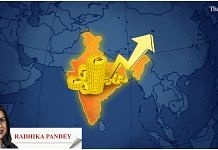
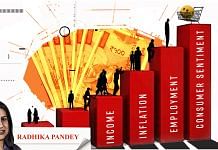
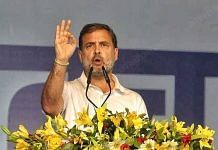




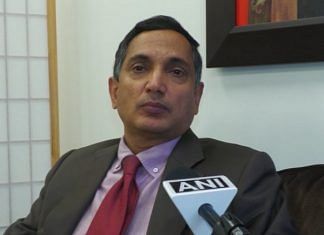

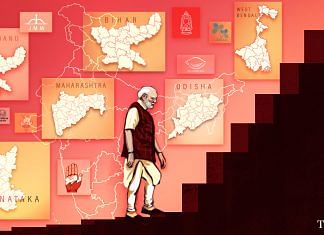
COMMENTS